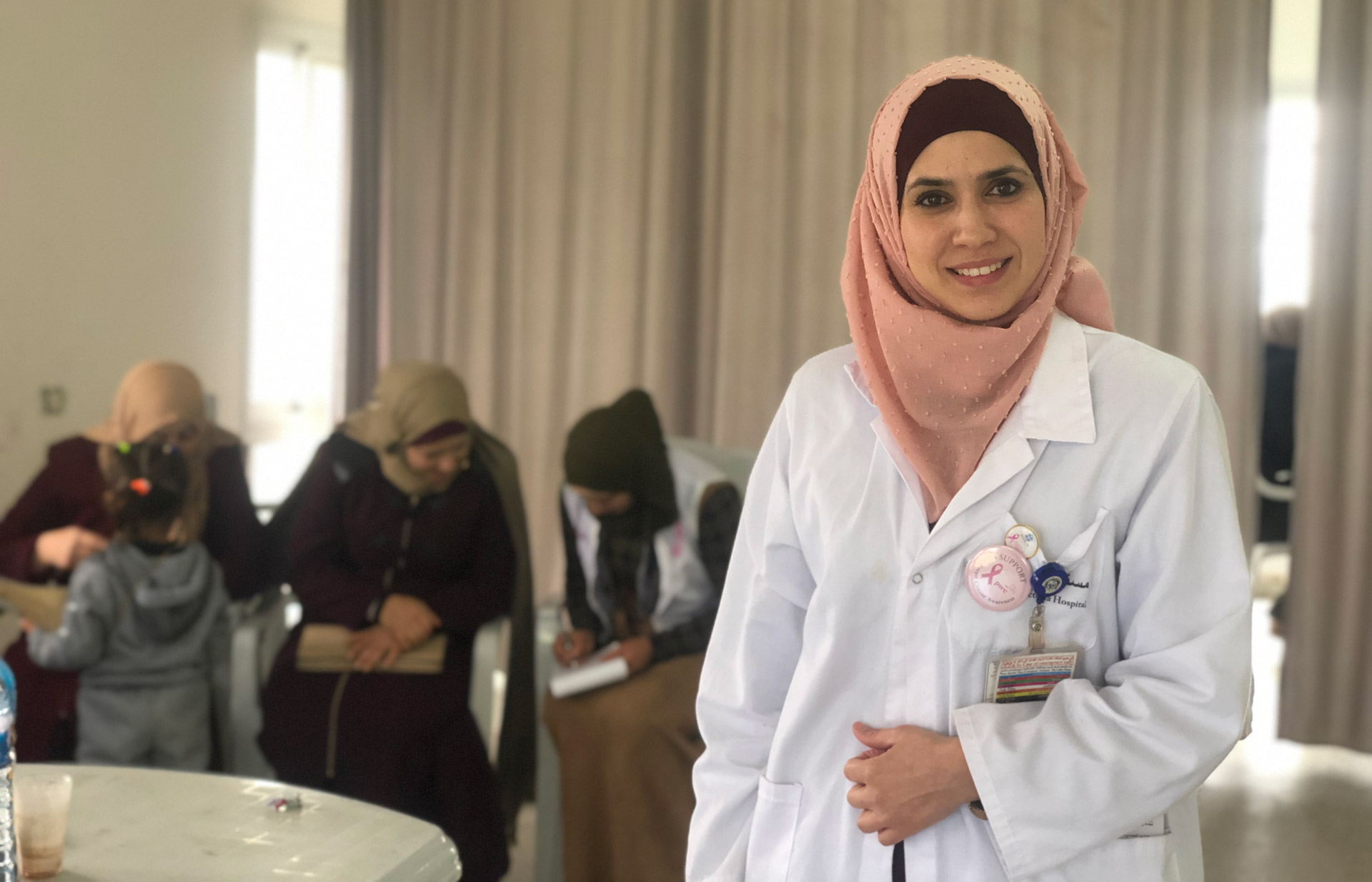
16 October 2025, Cairo, Egypt – Breast cancer remains the most commonly diagnosed cancer among women globally and in the WHO Eastern Mediterranean Region, with significant disparities in outcomes across countries. In 2022 alone, an estimated 2.3 million women were diagnosed worldwide, resulting in 670,000 deaths. These figures underscore the urgent need for equitable access to early detection, diagnosis, and treatment.
In countries with a very high Human Development Index (HDI), 1 in every 12 women will develop breast cancer in her lifetime, and 1 in 71 will die from it. In contrast, in low-HDI countries, only 1 in 27 women is diagnosed, yet 1 in 48 dies—highlighting critical gaps in health system capacity and access to care. These inequities extend beyond individual health outcomes, contributing to an intergenerational burden. In 2020, 1.04 million children were maternally orphaned due to cancer-related deaths, with one quarter of these linked to breast cancer.
In the Eastern Mediterranean Region, breast cancer accounts for more than 130,000 new cases and 52,000 deaths annually. The burden is compounded by multiple risk factors, including entrenched poverty, limited health infrastructure, low awareness and screening uptake, and cultural barriers that often marginalize women’s health needs. These challenges result in delayed diagnosis and treatment, reducing survival rates for a disease that is otherwise highly treatable when detected early.
The incidence-to-mortality ratio across the Region reflects these disparities. In 2022, Jordan reported 60 cases of breast cancer per 100,000 women, with a mortality rate of 19.3 per 100,000. Somalia, despite a lower incidence rate of 38.6 per 100,000, had a higher mortality rate of 25.7 per 100,000. Egypt, with one of the highest incidence rates at 55.4 per 100,000, reported a mortality rate of 19.8 per 100,000.
The 2024 WHO report Women’s cancer in the WHO Eastern Mediterranean Region: Situation analysis and investment case projects that without scaled-up interventions, breast cancer-related economic losses in the Region will reach US$408 billion by 2050. However, investing in early diagnosis and comprehensive treatment offers a compelling return—US$6.4 to 7.8 for every US$1 invested.
Since its launch in 2019, the Egyptian Presidential Initiative on Women’s Health has made significant strides in improving breast cancer outcomes. Aligned with the WHO Global Breast Cancer Initiative, the programme focuses on community-level awareness, annual clinical breast examinations for at-risk groups, and a fast-tracked referral pathway for diagnosis and treatment. This model demonstrates the power of political commitment and integrated care, offering a replicable approach for other low- and middle-income countries.
“The Cairo Call to Action reflects Egypt’s unwavering commitment to advancing breast cancer care through equity, innovation, and community engagement,” said H.E. Dr Khalid Abdel Ghaffar, Minister of Health and Population, Egypt. “We are proud to lead by example through the Presidential Initiative on Women’s Health, and we call on all countries in the Region to join us in ensuring that no woman is left behind.”
On 23 January 2025, the Egyptian Presidential Initiative hosted a high-level dialogue on advancing equity and innovation in breast cancer care, held alongside the 17th Breast, Gynaecological and Immuno-Oncology International Cancer Conference in Cairo. The event brought together policymakers, health leaders, and experts to discuss strategies for closing the equity gap and accelerating innovation in breast cancer care.
Building on these deliberations, the Cairo Call to Action was launched, outlining a set of key commitments to drive progress across the Region. It serves as a practical and unifying framework to galvanize partnerships and scale up proven, effective, evidence-based and innovative interventions, ensuring that no woman is left behind. The Call to Action represents a tangible step toward advancing regional solidarity and sustained collective action for women’s health and well-being throughout the Region and beyond.
“The success of the Cairo Call to Action depends on unity and partnership,” said Dr Hanan Balkhy WHO Regional Director for the Eastern Mediterranean. “By working together—governments, civil society, and global institutions—we can transform breast cancer outcomes across the Region. This is our moment to act, to innovate, and to deliver on the promise of health equity for all women.”
The framework outlines priority actions for national governments, civil society, and global partners. These include promoting public awareness through culturally sensitive campaigns, strengthening primary health care systems, investing in diagnostic and treatment infrastructure, and expanding access to psychosocial support and patient navigation services. It also calls for the integration of breast cancer data into national health information systems and the creation of regional platforms for collaboration and learning.
WHO and its partners reaffirm their commitment to supporting Member States in implementing the Cairo Call to Action and advancing a new era of regional solidarity and global cooperation in breast cancer care.








